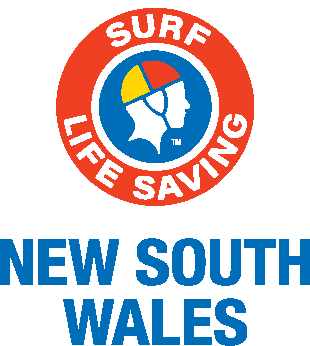When does the 2024/25 patrol season start?
The 2024/25 NSW beach patrol season starts on Saturday 28 September 2024 and finishes on Sunday 27 April 2025.
Volunteer surf lifesavers patrol 129 NSW beaches throughout this period on the weekends and public holidays. Find a patrolled beach via beachsafe.org.au.
How do I become a volunteer surf lifesaver?
If you want to become an active volunteer patrolling surf lifesaver you firstly need to join a NSW surf lifesaving club as a member and gain one of the following qualifications:
- Surf Rescue Certificate (minimum age 13)
- Bronze Medallion (minimum age 15)
- Radio Operators Certificate (minimum age 13)
- First Aid Certificate (minimum age 14)
Find out more about training and education available at NSW surf clubs.
How do I become a paid professional Lifeguard?
You can become a paid professional lifeguard by applying through the Australian Lifeguard Service NSW.
Lifeguards are required to hold a number of qualifications that can be provided upon application.
Lifeguards patrol many beaches alongside volunteer surf lifesavers but also provide their service throughout the week and school holidays at over 90 locations state-wide.
Some of NSW most popular beaches are patrolled by professional lifeguards 365 days a year. Find out more about the Australian Lifeguard Service and how to apply.
What is the difference between lifesavers and lifeguards?
The difference between lifesavers and lifeguards is lifesavers are volunteers who are part of surf lifesaving clubs. Lifeguards are paid professionals who work for the Australian Lifeguard Service, local council or an alternate service provider.
Surf lifesavers always wear red and yellow patrol uniforms. Some professional lifeguards don’t wear red and yellow uniforms but both lifesavers and lifeguards patrol the beaches and are able to be found wherever you see the red and yellow flags.
How do I join Nippers?
Nippers is the junior activities program within surf lifesaving clubs in Australia. Nippers provides age division programs for children from five-years-old to 13-years-old during the NSW patrol season. Each club is responsible for the dates and activities around their Nippers program. Find out more about the Nippers program and how to find a club.
How do I compete for a club?
You can compete for any surf club in surf sports competitions at a club, branch, state and national level. Surf sports competitions do not require qualification. To compete for your club, contact your club administrator or surf sports director to find out more about entries. Find out more about surf sports and how to get involved.
Surf sports in NSW include:
- Beach Events: Beach Sprints, Flags, Relays, 1km Run, 2km Run
- Water Events: Iron, Surf Ski, Board, Swim, Relays
- Surf Boats
- Inflatable Rescue Boat (IRB) Racing
- Board Riding (Surfing)
- Pool Rescue
- First Aid
- Rescue and Resuscitation (R&R)
- March Past
How do I become a drone pilot?
Surf Life Saving NSW proudly runs the largest fleet of UAVs (drones) in the southern hemisphere under the Australian UAV Service. There are opportunities for both paid and volunteer drone pilots to conduct aerial surveillance for beach safety across NSW.
The minimum age is 16-years-old and training is available. Find out more about the Australian UAV Service and how to apply to become a pilot.
Do you provide First Aid Training?
We provide First Aid Training including Mental Health First Aid courses in-person and online through the Australian Lifesaving Academy. You can have an Academy trainer come to you, you can join a public course or attend a course at the Surf Life Saving NSW Belrose Head Office.
The Australian Lifesaving Academy also offers special rates for Surf Life Saving NSW members. Find or book a course.
How do I become a First Aid Trainer?
The Australian Lifesaving Academy is always looking to expand its team of trainers. Academy trainers deliver courses across NSW at either public courses, booked courses and even online.
To become a First Aid Trainer you need a TAE40116: Certificate IV in Training and Assessment to get started. If you’re interested in becoming a trainer with the Australian Lifesaving Academy, contact us now.
What is an Emergency Response Beacon?
An Emergency Response Beacon, or ERB, is an autonomous emergency response tool being rolled out at identified ‘back spot’ locations across the state to assist in lifesaving activities.
For more information on ERBs, click here.


